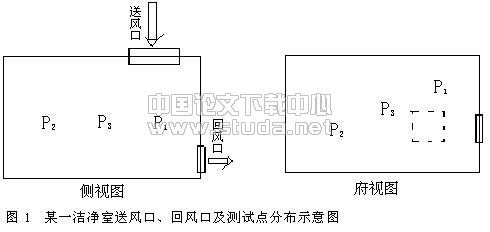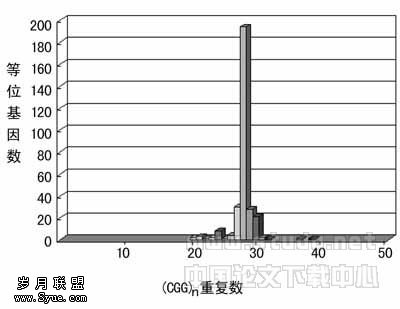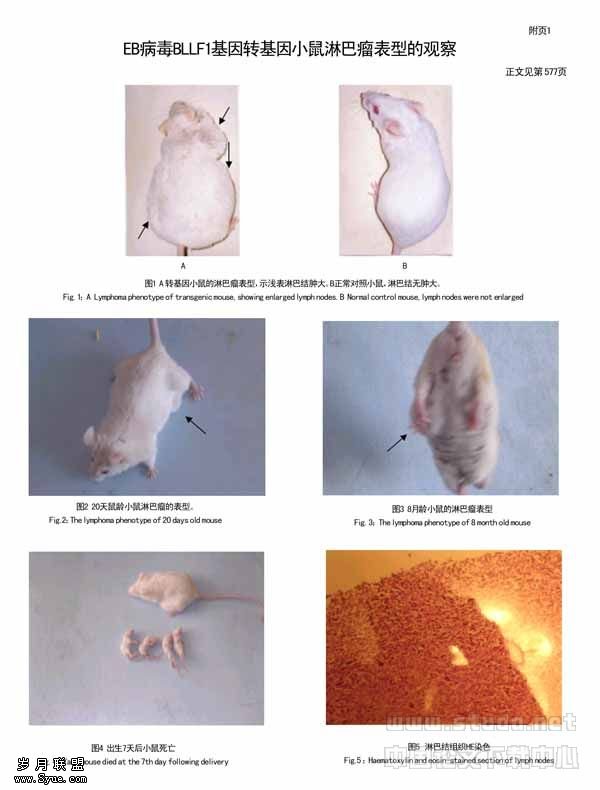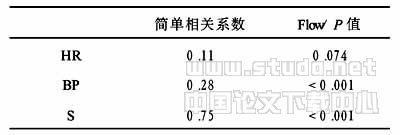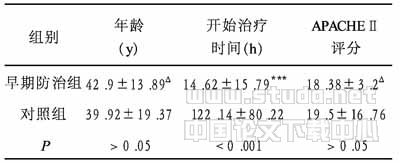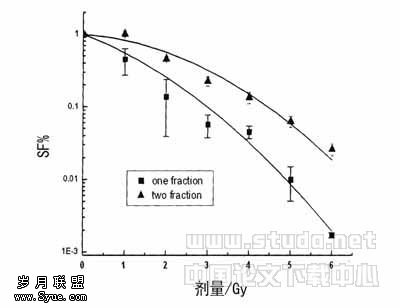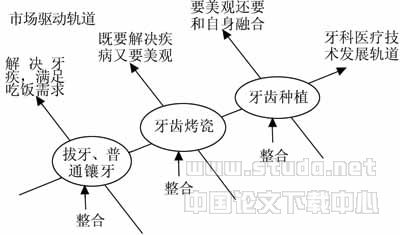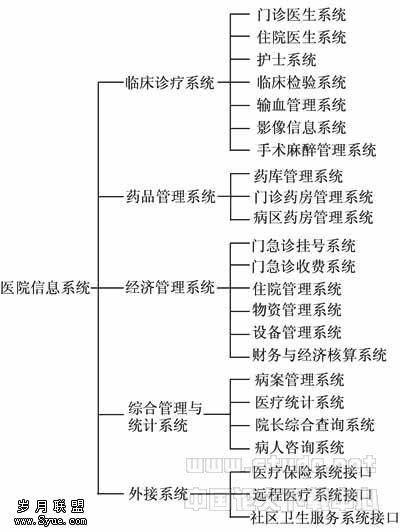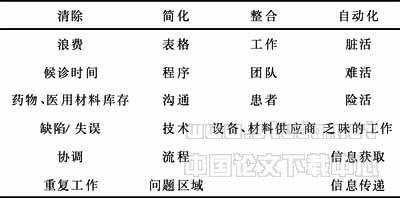Clinical Implications of EGFR Expression in the Development
【关键词】 EGFR,•,Cancer,therapy,•,Lung,cancer,•,Anti-EGFR,agents
LEARNING OBJECTIVES
After completing this course, the reader will be able to:
Describe the EGFR signaling pathway as a target for new anticancer agents.
Characterize the various EGFR agents developed for the treatment of NSCLC.
Identify the appropriate indications for the use of these new agents.
ABSTRACT
Dysregulation of the epidermal growth factor receptor (EGFR) signaling pathway is associated with the development and progression of malignancy, and EGFR-targeted therapies offer the promise of better treatment for many types of solid tumors, including non-small cell lung cancer. Anti-EGFR agents include monoclonal antibodies (mAbs) targeting the EGFR extracellular receptor domain and small-molecule tyrosine kinase inhibitors (TKIs) targeting the EGFR intracellular kinase domain. Both mAbs and TKIs have demonstrated encouraging results as monotherapies and in combination with chemotherapy and radiotherapy. This review provides a critical update on the status of these novel therapeutics.
INTRODUCTION
Lung cancer is a major cause of morbidity and mortality worldwide. In the U.S., 172,570 new cases and 163,510 related deaths were predicted for 2005, with lung cancer comprising ~29% of all cancer deaths [1, 2]. Between 80% and 87% of newly diagnosed lung cancers are non-small cell lung cancer (NSCLC). Advanced presentation and lack of effective treatment options afford poor prognoses [3, 4], and despite notable technological progress, improvements in NSCLC survival over the past two decades have been modest [5].
This review focuses on new approaches in NSCLC therapy using monoclonal antibodies (mAbs) and tyrosine kinase inhibitors (TKIs) targeting molecules involved in tumor growth and angiogenesis, including the epidermal growth factor receptor (EGFR) and vascular endothelial growth factor (VEGF).
CURRENT CONCEPTS IN ADVANCED NSCLC CHEMOTHERAPY
Chemotherapy for advanced, inoperable NSCLC is generally palliative. The potential benefits of improved tumor size, symptoms, and quality of life are mitigated by the disadvantages of increased hospitalization, inconvenience, cost, and serious adverse events [6]. The advent of paclitaxel, gemcitabine, vinorelbine, irinotecan, and topotecan and their combination with platinum drugs has modestly improved response rates (RRs) and survival (Table 1) [3, 6]. Although cisplatin combinations with any of the newer agents produce longer survival times than carboplatin combinations [7], no particular platinum-based regimen has demonstrated superior efficacy over any other. A randomized, controlled study comparing paclitaxel plus carboplatin with vinorelbine plus cisplatin in 202 patients with advanced NSCLC demonstrated fewer life-threatening toxicities and greater convenience and tolerability for paclitaxel plus carboplatin but a similar overall RR and median survival time [8]. A randomized, controlled study evaluating four platinum-containing regimens in 1,155 patients found that the overall RR and survival time did not differ significantly for paclitaxel plus cisplatin, gemcitabine plus cisplatin, docetaxel plus cisplatin, and paclitaxel plus carboplatin, although paclitaxel plus carboplatin had lower toxicity [9]. Other randomized, controlled studies showed that the gemcitabine plus cisplatin and gemcitabine plus paclitaxel did not produce a longer overall survival time compared with paclitaxel plus cisplatin [10] and that docetaxel plus cisplatin produced more favorable overall response and survival rates than vinorelbine plus cisplatin [11]. Median survival times for patients receiving these standard chemotherapy regimens have generally been 811 months.
A triweekly docetaxel regimen is the current standard for second-line chemotherapy in NSCLC, with an approximately 12% RR and 68 months median survival time [12]. Weekly paclitaxel courses have been well received and have resulted in an approximately 9 months’ median survival time [13]. Pemetrexed, compared with docetaxel as second-line treatment for NSCLC in phase III studies, appeared to have similar efficacy but significantly fewer adverse effects [14].
Despite these advancements, a plateau of effectiveness appears to have been reached for the treatment of NSCLC with standard chemotherapy [3], and substituting one agent for another in combination chemotherapy regimens does not necessarily guarantee a significantly better overall RR and survival [15]. Current research efforts in both first- and second-line treatments for NSCLC focus on a number of promising agents targeted against the EGFR signaling pathway.
EGFR BIOLOGY AND EXPRESSION IN NSCLC
EGFR, a member of the HER/Erb-B family of receptor tyrosine kinases, mediates cell proliferation, differentiation, survival, angiogenesis, and migration [16]. This molecule consists of an extracellular domain that binds EGF, transforming growth factor alpha (TGF-), and other growth factors; a short transmembrane region; and an intracellular tyrosine kinase domain. Ligand binding leads to homodimerization of EGFR or heterodimerization of EGFR with another receptor of the Erb-B family and phosphorylation of specific EGFR tyrosine residues [16]. Tyrosine-phosphorylated receptors then recruit intracellular signaling proteins, converting extracellular signals to intracellular signal transduction events [17].
Although EGFR plays an important role in maintaining normal cell function, dysregulation of EGFR signaling pathways contributes to the development of malignancy via effects on cell-cycle progression, inhibition of apoptosis, induction of angiogenesis, and promotion of tumor-cell motility and metastasis (Fig. 1) [18]. EGFR is known to be expressed more abundantly in malignant than in normal tissue, including 40%80% of NSCLCs [18, 19]. Among the various histologic types of lung cancer, increased EGFR expression is most frequent in squamous and large-cell carcinomas and least frequent in small-cell carcinomas (Table 2) [20]. EGFR levels are also higher in pathological stage IV NSCLC than in stage I and II disease and are higher in cases with higher mediastinal involvement [21].
Mutant EGFRs, including EGFRvIII [22] and in-frame deletions or amino acid substitutions around the tyrosine kinase domain ATP-binding pocket [23], have been reported. The tyrosine kinase mutants demonstrate enhanced tyrosine kinase activation in response to EGF and greater sensitivity to TKIs (see below).
Although EGFR expression is important in the development and progression of malignancy, reports regarding its prognostic significance have been conflicting. Some studies found positive correlations among high levels of EGFR, tumor invasiveness [24], and poorer survival [25, 26], whereas others showed no correlation between EGFR expression and survival [27]. EGFR amplification in a subset of patients from the Iressa NSCLC Trial Assessing Combination Treatment (INTACT) study appeared to increase progression-free survival (PFS) [28], but sample size precluded definitive conclusions.
ANTI-EGFRTARGETED APPROACHES TO TREATMENT OF NSCLC
The role of EGFR in carcinogenesis led to the development and extensive evaluation of EGFR-blocking agents for cancer treatment [29, 30]. Two EGFR-targeted approaches have been explored: (a) mAbs targeting the EGFR extra-cellular domain and (b) small-molecule TKIs targeting the intracellular EGFR tyrosine kinase domain. The best-studied of the anti-EGFR mAbs in NSCLC is cetuximab (Erbitux®; ImClone Systems, Inc., New York), although others―such as panitumumab (ABX-EGF) and matuzumab (EMD72000)―arecurrently in early phases of investigation [3134]. Among the small-molecule TKIs, the best-studied are gefitinib (Iressa®; AstraZeneca Pharmaceuticals, Wilmington, DE) and erlotinib (Tarceva®; Genentech, Inc., South San Francisco, CA). Both mAbs and TKIs generally have milder toxicity than conventional drugs, which are cytotoxic. Because they target cellular processes associated with tumor resistance to radiation (e.g., proliferation and angiogenesis), antibodies and TKIs have the potential to be combined effectively with radiotherapy in the treatment of NSCLC [35].
Anti-EGFR mAbs
Antibodies generally have the advantages of less frequent administration, induction of receptor downregulation, the potential to engage the host immune response in direct tumor cell cytotoxicity, and a favorable toxicity profile (notably the absence of gastrointestinal adverse effects). Antibodies specific for EGFR are among the first targeted therapies to demonstrate effectiveness in treating cancer, including NSCLC.
Cetuximab
Cetuximab, a chimeric human-murine IgG1 mAb, blocks ligand binding to EGFR, thereby diminishing receptor dimerization and autophosphorylation, and induces EGFR receptor downregulation, reducing the number of receptors on the cell surface. The immunoglobulin IgG1 isotype of cetuximab may also engage host immune functions, such as antibody-dependent cellular cytotoxicity (ADCC) [36].
Preclinical studies with cetuximab showed that it enhanced the activity of cytotoxic drugs [3739] and radio-therapy [3941]. This may be related to its ability to block the nuclear import of EGFR and activation of DNA-dependent kinase (DNA-PK) necessary for the repair of radiation- and chemotherapy-induced DNA damage [42].
Early clinical studies in advanced NSCLC have reported promising responses for cetuximab administered as monotherapy or in combination with chemotherapy in chemotherapy-naïve and previously treated patients (Table 3).
Monotherapy. A phase II study of cetuximab monotherapy in recurrent or metastatic EGFR-detectable NSCLC patients with one or more prior chemotherapy regimens demonstrated 2 of 29 (6.9%) partial responses (PRs) and 5 patients (17.2%) with stable disease [43]. Similar RRs (3.3% PR [2/60 patients], 25% stable disease [15/60 patients]) were shown in a subsequent phase II trial in patients with stage IIIB/IV recurrent or metastatic disease [44]. These studies showed that cetuximab is well tolerated, with rash as the most common toxicity. It is encouraging that recent phase II monotherapy data in advanced colorectal cancer (CRC) showed consistent RRs regardless of the number of prior lines of therapy (38) or sequence of prior agents [45].
Combination with Chemotherapy Regimens. The efficacy of cetuximab plus chemotherapy has been examined. In a phase I study in advanced tumors including NSCLC, 2 of 19 patients (10.5%) receiving multiple doses of cetuximab plus cisplatin had PRs [46]. A randomized, controlled trial in chemotherapy-naïve patients with advanced, EGFR-expressing NSCLC showed a higher RR for the cetuximab plus vinorelbine plus cisplatin regimen than for vinorelbine plus cisplatin alone (31.7% vs. 20.0%) [47]. Other studies of cetuximab combinations have reported similar RRs. Cetuximab combined with docetaxel in chemotherapy-refractory/resistant NSCLC resulted in a 28% (13/47) PR rate and 17% (8/47) stable disease rate [48]. Cetuximab added to paclitaxel plus carboplatin or to gemcitabine plus carboplatin in chemotherapy-naïve NSCLC led to RRs of 26% (n = 31) and 28.6% (n = 35), respectively [49, 50].
Combination with Radiotherapy Regimens. To date, cetuximab studies in lung cancer have focused on tumor responses as endpoints and have not been designed to demonstrate significant survival benefits. However, longer survival has been shown in studies on other tumor types. A recent phase III international trial comprising 424 patients with locally-advanced squamous-cell carcinoma of the head and neck (SCCHN), a difficult-to-treat population, demonstrated the first significant survival benefit for a targeted therapy, cetuximab, in combination with high-dose radiation, compared with radiation alone. Patients receiving radiation therapy without cetuximab showed a median survival of 28 months, and patients receiving radiation with cetuximab showed a median survival of 54 months [51]. The 2-year and 3-year survival times were also significantly longer in the cetuximab-treated population. Currently, cetuximab is the only EGFR-targeted agent shown to improve survival significantly in a curative setting in SCCHN.
Cetuximab has been well tolerated in all clinical trials conducted. The most common treatment-related adverse effect, which occurs in most patients, is a self-limiting acne-iform rash generally occurring in the first 23 weeks. The rash stabilizes or resolves with continued therapy and disappears completely without scarring once treatment is stopped [15, 52]. The occurrence of rash with cetuximab reflects the widespread distribution of EGFR in epithelial tissue, and a number of studies have reported a correlation between rash and response to cetuximab [45, 52, 53]. A current clinical trial (EVEREST, a phase II trial using cetuximab in escalating doses combined with irinotecan to achieve higher rates of skin rash and response in patients with metastatic colorectal cancer previously treated with irinotecan) is exploring dose-to-rash treatment strategies. Less commonly (1.5% reported in the U.S., data on file), infusion reactions have occurred in some patients. These reactions generally respond to treatment with corticosteroids, antihistamines, and bronchodilators administered alone or in combination [52] and are rarely fatal (<1 in 1,000).
Important questions remain regarding the relevance of EGFR detection as a requirement for cetuximab therapy. A retrospective analysis of cetuximab for EGFR-undetectable CRC (as determined by immunohistochemistry [IHC]) showed four PRs (25%; 95% confidence interval [CI], 4%46%), and 7 of 16 EGFR-undetectable patients achieved some degree of tumor control [54]. In an analysis of EGFR staining intensity versus RR or survival in cetuximab-treated CRC patients, the RRs for 1+, 2+, and 3+ tumors were uncorrelated [55]. These findings suggest that, aside from EGFR detection by IHC, evaluation of other markers such as activated, nonphosphorylated, and mutated receptors, EGFR ligands, and downstream effector molecules may lead to more accurate prognostic indicators of cetuximab responsiveness.
Panitumumab
Panitumumab (ABX-EGF) is a human IgG2 mAb that targets EGFR and, unlike cetuximab, mediates its effect through mechanisms other than ADCC. In a phase I study of 88 renal cancer patients, three patients had PRs, two had minor responses, and 44 (50%) had stable disease after 8 weeks of treatment with panitumumab [31, 42]. The frequency of an acneiform skin rash was also directly proportional to the dose of panitumumab and was associated with longer PFS.
Panitumumab is being evaluated as monotherapy for patients with metastatic CRC and advanced solid tumors, and also in combination with chemotherapy for unresectable or recurrent colorectal, lung, breast, bladder, and ovarian cancer [56].
Matuzumab
Matuzumab (EMD 72000) is a humanized anti-EGFR mAb currently in phase II trials for gastric, esophageal, and lung cancers [4]. One of these trials is investigating the effect of matuzumab in combination with the chemotherapy agent pemetrexed as a second-line therapy in patients with advanced NSCLC [57].
EGFR TKIs
Small-molecule TKIs are another class of EGFR-targeted agents. TKIs can be orally administered, have a rapid onset of action, and potentially have better tumor penetration than mAbs [15]. Among drugs of this class, the two most extensively evaluated in NSCLC are gefitinib and erlotinib. Both have demonstrated single-agent activity in NSCLC, and greater sensitivity to either gefitinib or erlotinib has been correlated with somatic mutations in the receptor kinase domain and/or increased EGFR gene copy number [58] (see below). Other TKIs undergoing testing in early-phase clinical trials include PKI 166, GW 572016, EKB 569, and CI-1033 [59]. In preclinical studies, all these agents inhibited the growth of EGFR-expressing human cancer cell lines and showed additive or synergistic growth inhibitory effects when combined with chemotherapeutic agents or radiotherapy [20, 6062].
Gefitinib
Gefitinib, an anilinoquinazoline, was the first TKI selective for EGFR evaluated in NSCLC. It is orally active and given once daily. Studies conducted on gefitinib in NSCLC are summarized in Table 4.
Monotherapy. Two randomized, double-blind trials of gefitinib monotherapy in daily doses of 250 mg or 500 mg given to patients with advanced NSCLC who had previously received chemotherapy regimens―the Iressa Dose Evaluation in Advanced Lung Cancer (IDEAL)-1 and IDEAL-2―recorded objective RRs of 10%19% [63, 64]. In both studies, symptoms improved in 35%43% of patients. Although no significant differences in efficacy were found between the 250- and 500-mg daily doses of gefitinib, adverse effects occurred more frequently with the higher dosage [63, 64]. In the first study, greater efficacy was found in Japanese than in non-Japanese patients (27.5% vs. 10.4%, p = .0023) [63].
Results from three institutional studies of single-agent gefitinib therapy used on a compassionate basis in patients with advanced NSCLC for whom standard treatment had failed or who were not suitable for systemic chemotherapy were recently presented (Table 4) [6568]. In the largest of these studies, involving 21,064 patients with stage III/IV NSCLC who received one or more doses of gefitinib, median survival was 5.3 months, and the 1-year survival rate was 29.9% [66]. These results are comparable with those obtained with chemotherapy in a second-line clinical setting.
A phase III randomized, multicenter study of gefitinib in refractory advanced NSCLC, the Iressa Survival Evaluation in Lung Cancer (ISEL) trial, recently concluded that gefitinib provided no significant survival benefit over best supportive care across the total population of patients studied [69]. However, significant survival benefit was observed in specific subpopulations, including patients of Asian descent (n = 342; median survival 9.5 vs. 5.5 months; p = .01) and patients with no smoking history (n = 375; median survival, 8.9 vs. 6.1 months; p = .012) [69].
A study in patients with advanced bronchioalveolar cell carcinoma (BAC), a subtype of NSCLC with distinctive clinical, pathologic, and radiographic characteristics that is generally considered chemoresistant, found that single-agent gefitinib therapy of 500 mg daily achieved tumor RRs of 21% and 10% in chemotherapy-naïve and previously treated patients, respectively. Median survival times were 12 and 10 months, respectively [70]. In this same study, increased EGFR gene copy number, as detected by fluorescence in situ hybridization (FISH), was associated with longer survival (median survival >18 months vs. 8 months; p = .042) [71].
Combination with Chemotherapy Regimens. Two double-blind, placebo-controlled trials―the Iressa NSCLC Trial Assessing Combination Therapy (INTACT)-1 and INTACT-2 trials―evaluated whether the addition of gefitinib to gemcitabine plus cisplatin or paclitaxel plus carboplatin provides additional clinical efficacy over chemotherapy alone in chemotherapy-naïve patients with advanced NSCLC. Both indicated no benefit from gefitinib in objective RR or survival [72, 73]. One potential explanation for the failure of gefitinib to provide clinical benefit is that concurrent cytotoxic agents abrogate its efficacy by directly or indirectly altering EGFR expression [74]. It has been suggested, therefore, that sequential therapy, in which chemotherapy regimens are preceded or followed by gefitinib, or intercalated therapy, in which high doses of gefitinib are given as a bolus between chemotherapy regimens, may be better strategies, and trials to test these hypotheses are currently in progress [15].
Preliminary results from other studies of gefitinib used in combination with chemotherapy have provided some encouraging results [7577]. In one study, in which gefitinib was given in combination with concurrent paclitaxel plus carboplatin and radiation therapy in patients with stage III NSCLC, a complete RR of 27% and a PR rate of 64% were achieved in 11 evaluable patients [75].
The available clinical data on gefitinib indicate significant variability in responsiveness. Recent studies suggest that greater response to EGFR inhibitors is related to mutations in exons 1821 of the EGFR tyrosine kinase domain, which increase growth factor signaling (Table 5) [23, 28 ,34, 63, 7880]. Mutations were significantly associated with adenocarcinoma, history of no smoking, and female gender [81, 82].
On the other hand, some reports describe the existence of tumors with a different type of EGFR mutation in this domain―a threonine-to-methionine substitution at position 790 (T790M)―that renders resistance instead of sensitivity to gefitinib [81, 8385]. In addition, a mutation in the K-ras gene, which mediates EGFR signaling, may also confer resistance to TKIs [28, 79]. If confirmed, these findings suggest that screening for such mutations may identify patients who are more, or less, likely to respond to gefitinib.
Measurement of EGFR expression by IHC was not useful for predicting responsiveness to gefitinib in the patients enrolled in the IDEAL or INTACT studies [86, 87]. However, IHC coupled with FISH to detect increased EGFR gene copy number may help to predict which patients are likely to benefit from gefitinib therapy [88]. Other factors that might be predictive of responsiveness include a better performance status and the appearance of rash while on gefitinib treatment [89, 90].
Gefitinib has been generally well tolerated, with skin rash and diarrhea occurring in 40%60% of patients. Other less common adverse effects include nausea, vomiting, pruritus, dry skin, and asthenia [91, 92]. Potential danger of gefitinib-associated lung toxicity in a subset of NSCLC patients with previous thoracic irradiation or poor performance status has also been reported [93].
Erlotinib
Like gefitinib, erlotinib is an orally-active, EGFR-specific quinazoline TKI that demonstrated antitumor activity in xenograft models [3, 15, 19, 94]. In addition to first-line treatment for advanced pancreatic cancer, erlotinib is currently approved for second-line treatment of locally advanced or metastatic NSCLC. Several clinical studies of erlotinib in advanced NSCLC have been reported (Table 6).
Monotherapy. A phase II study of erlotinib (150 mg daily) in 57 advanced NSCLC patients demonstrated two complete responses (4%) and 5 PRs (9%). The median overall survival time was 8.4 months, with a 40% 1-year survival rate. Patients with skin rash survived significantly longer than those without rash, suggesting skin rash as a potential marker of erlotinib response [95]. Erlotinib (150 mg daily) resulted in a 25.4% PR rate (15 of 59 evaluable patients) in BAC patients. Greater erlotinib responsiveness was shown in never-smoking patients (37%) and adenocarcinoma with BAC (30%) [96].
A recent double-blind, placebo-controlled phase III study comparing erlotinib with placebo in patients (n = 731) with stage IIIB/IV NSCLC and one to two prior chemotherapy regimens―the National Cancer Institute of Canada Clinical Trials Group (NCIC CTG) trial BR.21―reported the first evidence of an EGFR inhibitor prolonging survival in chemotherapy-refractory NSCLC [97, 98]. Patients receiving erlotinib (n = 488) at 150 mg daily demonstrated significantly longer overall survival (6.7 months vs. 4.7 months) and PFS (2.2 months vs. 1.8 months) than those receiving placebo. The overall erlotinib RR was 8.9%. The median response duration was 34.2 weeks. RRs were higher among specific subpopulations, including women, Asians, nonsmokers, and patients with adenocarcinoma, reminiscent of similar results with gefitinib [98]. Response was associated with higher EGFR gene copy number, but no survival advantage was seen in patients with higher EGFR expression or mutations in exons 19 and 21 [99]. Mutation frequency in EGFR or K-ras was not correlated with tumor sensitivity or responsiveness to erlotinib in one study [100]; in another study, 9 of 37 patients with EGFR mutations responded well to erlotinib, and 4 of 34 patients with K-ras mutations did not respond to erlotinib (Table 5) [101].
Combination with Chemotherapy Regimens. As with the gefitinib INTACT studies [72, 73], erlotinib showed no survival advantage when combined with a two-drug chemotherapy regimen. In a randomized, placebo-controlled study of 1,059 previously untreated advanced NSCLC patients, erlotinib (150 mg daily) with six cycles of paclitaxel plus carboplatin followed by maintenance mono-therapy showed no significant differences in overall RR, response duration, median survival, or time to progression (TTP) compared with paclitaxel plus carboplatin alone [102]. However, patients who never smoked showed longer survival with erlotinib (23 vs. 10 months) [103]. A placebo-controlled study of erlotinib (150 mg daily) plus gemcitabine plus cisplatin in 1,172 patients with previously untreated, advanced NSCLC showed no improvement in overall survival or TTP compared with gemcitabine plus cisplatin alone [104].
Erlotinib tolerability is similar to that of gefitinib. Skin rash and diarrhea are the most common adverse effects [59]. Preliminary results of a study of erlotinib administered at 1,200, 1,600, or 2,000 mg weekly suggest that 1,600 mg/week is tolerable for advanced NSCLC patients refractory to previous chemotherapy. Weekly high-dose therapy (i.e., >2,000 mg) is being investigated [105].
EGFR and Tumor Angiogenesis: Another Rational Approach to NSCLC Treatment
New blood vessel formation is required for the growth and progression of most tumors. The EGFR is also involved in angiogenesis: the EGFR ligands―EGF and TGF-―induce angiogenesis, and TGF- promotes the expression of VEGF, which induces vascular growth and vascular cell permeability [18, 106], providing a strong rationale for combined anti-VEGF/anti-EGFR therapy. VEGF expression is upregulated in many tumors, resulting in an imbalance between pro- and antiangiogenic factors in the tumor microenvironment, promoting vascularization and growth [106, 107]. At least four isoforms of VEGF exist, VEGF-A through VEGF-D, and three isoforms of membrane-bound VEGF receptors have been identified (VEGFR-1, VEGFR-2, and VEGFR-3), each with distinct roles in angiogenesis [108].
Antiangiogenesis in NSCLC Treatment
Several angiogenesis inhibitors have been studied in NSCLC [109]. They include antibodies to VEGF and VEGFR and inhibitors of VEGFR tyrosine kinase [108]. The best-studied angiogenesis inhibitor is bevacizumab (rHumAb-VEGF), an anti-VEGF antibody that has been evaluated in combination with chemotherapeutic agents and erlotinib in advanced or recurrent NSCLC. In a randomized, controlled trial involving 99 patients with previously untreated stage IIIB/IV or recurrent NSCLC, bevacizumab added to paclitaxel plus carboplatin improved overall response and TTP compared with paclitaxel plus carboplatin alone. The median TTP was significantly greater for patients receiving a high-dose (15 mg/kg) bevacizumab regimen than for those receiving a low-dose (7.5 mg/kg) bevacizumab regimen (7.4 vs. 4.2 months; p = .023). In contrast, no significant difference in TTP was found for the low-dose bevacizumab group versus paclitaxel plus carboplatin alone [110].
Preliminary results from a phase I/II study of bevacizumab plus erlotinib in previously treated stage IIIB/IV or recurrent NSCLC patients showed PRs in 8 of 40 (20.0%) and stable disease in 26 of 40 (65%) patients. The median overall survival time and TTP were 12.6 and 6.2 months, respectively [111]. The recent Eastern Cooperative Oncology Group (ECOG) E4599 trial compared paclitaxel plus carboplatin with bevacizumab (PCB) and without bevacizumab (PC) in advanced NSCLC [112]. This was the first phase III trial to demonstrate a survival advantage obtained from a first-line treatment combining a targeted biologic with chemotherapy, reporting encouraging tumor RRs (27% for PCB vs. 10% for PC), PFS (6.4 vs. 4.5 months) and median survival rates (12.5 vs. 10.3 months) with bevacizumab.
Bevacizumab appears to be generally well tolerated. Combination with paclitaxel plus carboplatin showed modest changes to the chemotherapy regimen toxicity profile [110]. However, some bevacizumab-associated adverse effects warrant special attention, including hypertension, proteinuria, and hemorrhage. Most cases of hemorrhage with bevacizumab have been minor, but some serious pulmonary hemorrhages have occurred, which often results from angiogenesis inhibition; also, poorly developed neovessels in large, centrally located tumors may be more prone to hemorrhage into the necrotic tumor cavity [110]. Eligibility restrictions in clinical trials of bevacizumab in NSCLC have included a history of myocardial infarction or stroke, significant peripheral vascular disease, central nervous system or brain metastasis, lung carcinoma of squamous cell histology or close proximity to a major vessel, and use of anticoagulants, aspirin, or nonsteroidal anti-inflammatory drugs.
Promising results have been reported for combined anti-EGFR and anti-VEGF therapy, notably the Bowel Oncology with Cetuximab Antibody (BOND)-2 study, which showed that concurrent administration of cetuximab and bevacizumab is feasible and can result in improved RRs in bevacizumab-naïve patients with advanced CRC [113] (see above). In addition, ZD6474, an orally available small-molecule kinase inhibitor of both EGFR and VEGFR, is being explored for efficacy in NSCLC and other cancers. Phase II trials of ZD6474 in combination with standard chemotherapies in first- and second-line settings for advanced or meta-static NSCLC are ongoing. Preliminary data have shown that ZD6474 combined with docetaxel provided an 18.2% (2/11) PR rate and a 63.4% (7/11) SD rate for 12 weeks in NSCLC patients who had previously failed first-line platinum-based chemotherapy [114]. ZD6474 combined with carboplatin plus paclitaxel as a first-line therapy in NSCLC (IIIBIV) demonstrated a 39% (7/18) PR rate in a randomized, double-blind trial [115].
SUMMARY AND CONCLUSIONS
Current treatments for advanced NSCLC have resulted in only modest response rates, and drug resistance is common. Based on identification of tumor-specific molecular signaling pathways, targeted therapies offer potentially greater clinical benefit. Newer therapies targeted against the EGFR signaling pathway offer the promise of improved NSCLC treatment, leading to longer patient survival. Recent studies with the anti-EGFR antibody cetuximab, the EGFR TKIs gefitinib and erlotinib, and the anti-VEGF antibody bevacizumab have been encouraging. Important findings include: (a) enhanced vinorelbine/cisplatin efficacy by cetuximab in chemotherapy-naïve patients with advanced, EGFR-detectable NSCLC; (b) enhanced efficacy of paclitaxel/carboplatin by bevacizumab in chemotherapy-naïve patients with advanced or recurrent NSCLC; (c) activity of the TKIs gefitinib and erlotinib as second- or third-line monotherapy in prolonging survival (erlotinib) or improving symptoms (gefitinib and erlotinib) in advanced NSCLC patients failing prior chemotherapy; and (d) evidence of the activity of gefitinib and erlotinib in patients with BAC.
Despite their activity as a second- or third-line therapy in advanced NSCLC and augmentation of chemotherapeutic agent activity in preclinical studies, neither gefitinib nor erlotinib conferred a survival advantage in previously untreated NSCLC when administered with two-drug chemotherapy regimens (gemcitabine plus cisplatin and paclitaxel plus carboplatin). The reasons for their apparent lack of benefit when used concomitantly with platinum-containing regimens are unclear but may involve direct or indirect alteration of EGFR expression by cytotoxins. Thus, different administration schedules may be required (e.g., TKI administered before or after standard chemotherapy). On the other hand, cetuximab is well tolerated, with skin rash as its most common toxicity, and has resulted in longer survival in patients with SCCHN when combined with radiation therapy without exacerbating radiation toxicity, unlike chemotherapeutic agents.
To optimize the efficacy of EGFR inhibitors in advanced NSCLC, further research is necessary to establish their mechanism of action. Identification of accurate biomarkers may also help to identify appropriate patients. It is not yet clear whether measurement of EGFR tumor expression will be useful for predicting response, and study results appear conflicting. Skin rash and clinical characteristics (e.g., a history of never smoking, better performance status, and adenocarcinoma) may be useful for predicting response, and further studies in this area may prove fruitful. EGFR and K-ras mutants affecting gefitinib sensitivity and pharmacogenomic approaches may help identify patients likely to respond to therapy. Both EGFR and angiogenesis inhibitors have the potential to improve NSCLC survival, and the results of studies investigating combination therapy, including multiple biologic agents (e.g., anti-EGFR plus anti-VEGF therapy), in various tumors are eagerly anticipated.
DISCLOSURE OF POTENTIAL CONFLICTS OF INTEREST
Dr. Ettinger has acted as a consultant for Bristol-Myers Squibb, AstraZeneca, and Genentech; performed contract work with a research study for Bristol-Myers Squibb, IMClone, and OSI; and has received support from Bristol-Myers Squibb, IMClone, and OSI for said research study.
REFERENCES
American Cancer Society. Cancer Facts & Figures 2005.
Jemal A, Murray T, Ward E et al. Cancer statistics, 2005. CA Cancer J Clin 2005;55:1030.
Herbst RS. Targeted therapy using novel agents in the treatment of non-small-cell lung cancer. Clin Lung Cancer 2002;3(suppl 1):S30S38.
Kim ES, Vokes EE, Kies MS. Cetuximab in cancers of the lung and head & neck. Semin Oncol 2004;31(suppl 1):6167.
Gatzemeier U. Targeting the HER1/EGFR receptor to improve outcomes in non-small-cell lung cancer. Oncology (Williston Park) 2003;17(suppl 12):710.
Ettinger DS. Is there a preferred combination chemotherapy regimen for metastastic non-small cell lung cancer? The Oncologist 2002;7:226233.
Hotta K, Matsuo K, Ueoka H et al. Meta-analysis of randomized clinical trials comparing cisplatin to carboplatin in patients with advanced non-small-cell lung cancer. J Clin Oncol 2004;22:38523859.
Kelly K, Crowley J, Bunn PA Jr et al. Randomized phase III trial of paclitaxel plus carboplatin versus vinorelbine plus cisplatin in the treatment of patients with advanced non--small-cell lung cancer: a Southwest Oncology Group trial. J Clin Oncol 2001;19:32103218.
Schiller JH, Harrington D, Belani CP et al. Comparison of four chemotherapy regimens for advanced non-small-cell lung cancer. N Engl J Med 2002;346:9298.
Smit EF, van Meerbeeck JP, Lianes P etal. Three-arm randomized study of two cisplatin-based regimens and paclitaxel plus gemcitabine in advanced non-small-cell lung cancer: a phase III trial of the European Organization for Research and Treatment of Cancer Lung Cancer Group--EORTC 08975. J Clin Oncol 2003;21:39093917.
Fossella F, Pereira JR, Von Pawel J et al. Randomized, multinational, phase III study of docetaxel plus platinum combinations versus vinorelbine plus cisplatin for advanced non-small-cell lung cancer: the TAX 326 study group. J Clin Oncol 2003;21:30163024.
Barlesi F, Jacot W, Astoul P et al. Second-line treatment for advanced non-small cell lung cancer: A systematic review. Lung Cancer 2006;51:159172.
Camps C, Caballero C, Blasco A et al. Weekly paclitaxel as second/third-line treatment in advanced non-small cell lung cancer patients: efficacy and tolerability. Anticancer Res 2005;25:46114614.
Hanna N, Shepherd FA, Fossella FV et al. Randomized phase III trial of pemetrexed versus docetaxel in patients with non-small-cell lung cancer previously treated with chemotherapy. J Clin Oncol 2004;22:15891597.
Langer CJ. Emerging role of epidermal growth factor receptor inhibition in therapy for advanced malignancy: focus on NSCLC. Int J Radiat Oncol Biol Phys 2004;58:9911002.
Janmaat ML, Giaccone G. The epidermal growth factor receptor pathway and its inhibition as anticancertherapy. Drugs Today (Barc) 2003;39(suppl C):6180.
Schlessinger J. Cell signaling by receptor tyrosine kinases. Cell 2000;103:211225.
Herbst RS, Shin DM. Monoclonal antibodies to target epidermal growth factor receptor-positive tumors: a new paradigm for cancer therapy. Cancer 2002;94:15931611.
Sridhar SS, Seymour L, Shepherd FA. Inhibitors of epidermal-growth-factor receptors: a review of clinical research with a focus on non-small-cell lung cancer. Lancet Oncol 2003;4:397406.
Bunn PA Jr, Franklin W. Epidermal growth factor receptor expression, signal pathway, and inhibitors in non-small cell lung cancer. Semin Oncol 2002;29(suppl 14):3844.
Fujino S, Enokibori T, Tezuka N et al. A comparison of epidermal growth factor receptor levels and other prognostic parameters in non-small cell lung cancer. Eur J Cancer 1996;32A:20702074.
Pedersen MW, Meltorn M, Damstrup L et al. The type III epidermal growth factor receptor mutation. Biological significance and potential target for anti-cancer therapy. Ann Oncol 2001;12:745760.
Lynch TJ, Bell DW, Sordella R et al. Activating mutations in the epidermal growth factor receptor underlying responsiveness of non-small-cell lung cancer to gefitinib. N Engl J Med 2004;350:21292139.
Pavelic K, Banjac Z, Pavelic J et al. Evidence for a role of EGF receptor in the progression of human lung carcinoma. Anticancer Res 1993;13: 11331137.
Veale D, Kerr N, Gibson GJ et al. The relationship of quantitative epidermal growth factor receptor expression in non-small cell lung cancer to long term survival. Br J Cancer 1993;68:162165.
Volm M, Rittgen W, Drings P. Prognostic value of ERBB-1, VEGF, cyclin A, FOS, JUN and MYC in patients with squamous cell lung carcinomas. Br J Cancer 1998;77:663669.
Rusch V, Klimstra D, Venkatraman E et al. Overexpression of the epidermal growth factor receptor and its ligand transforming growth factor alpha is frequent in resectable non-small cell lung cancer but does not predict tumor progression. Clin Cancer Res 1997;3:515522.
Lynch TJ, Bell D, Haber D. Correlation of molecular markers including mutations with clinical outcomes in advanced non small cell lung cancer (NSCLC) patients (pts) treated with gefitinib, chemotherapy, or chemotherapy and gefitinib in IDEAL and INTACT clinical trials. Presented at the 2005 Annual Meeting of the American Society of Clinical Oncology, Orlando, Florida, May 1317, 2005.
Masui H, Kawamoto T, Sato JD et al. Growth inhibition of human tumor cells in athymic mice by anti-epidermal growth factor receptor monoclonal antibodies. Cancer Res 1984;44:10021007.
Sato JD, Kawamoto T, Le AD et al. Biological effects in vitro of monoclonal antibodies to human epidermal growth factor receptors. Mol Biol Med 1983;1:511529.
Rowinsky EK, Schwartz GH, Gollob JA et al. Safety, pharmacokinetics, and activity of ABX-EGF, a fully human anti-epidermal growth factor receptor monoclonal antibody in patients with metastatic renal cell cancer. J Clin Oncol 2004;22:30033015.
Kollmannsberger C, Schittenhelm M, Honecker F et al. Epidermal growth factor receptor (EGFR) antibody EMD 72000 in combination with paclitaxel (P) in patients (pts) with EGFR-positive advanced non-small cell lung cancer (NSCLC): a phase-I study. Proc Am Soc Clin Oncol 2003;22:2520a.
Hecht JR, Patnaik A, Malik I et al. ABX-EGF monotherapy in patients (pts) with metastatic colorectal cancer (mCRC): an updated analysis. Presented at the 2004 meeting of the American Society of Clinical Oncology, New Orleans, Louisiana, June 35, 2004.
Bianco R, Daniele G, Ciardiello F et al. Monoclonal antibodies targeting the epidermal growth factor receptor. Curr Drug Targets 2005;6: 275287.
Herbst RS, O’Reilly MS. The rationale and potential of combining novel biologic therapies with radiotherapy: focus on non-small cell lung cancer. Semin Oncol 2003;30(suppl 9):113123.
Fan Z, Masui H, Altas I et al. Blockade of epidermal growth factor receptor function by bivalent and monovalent fragments of 225 anti-epidermal growth factor receptor monoclonal antibodies. Cancer Res 1993;53:43224328.
Bruns CJ, Harbison MT, Davis DW et al. Epidermal growth factor receptor blockade with C225 plus gemcitabine results in regression of human pancreatic carcinoma growing orthotopically in nude mice by antiangiogenic mechanisms. Clin Cancer Res 2000;6:19361948.
Inoue K, Slaton JW, Perrotte P et al. Paclitaxel enhances the effects of the anti-epidermal growth factor receptor monoclonal antibody ImClone C225 in mice with metastatic human bladder transitional cell carcinoma. Clin Cancer Res 2000;6:48744884.
Raben D, Helfrich B, Chan D et al. C225 anti-EGFR antibody potentiates radiation (RT) and chemotherapy (CT) cytotoxicity in human non-small cell lung cancer (NSCLC) cells in vitro and in vivo. Proc Am Soc Clin Oncol 2001;20:257a.
Milas L, Fan Z, Andratschke NH et al. Epidermal growth factor receptor and tumor response to radiation: in vivo preclinical studies. Int J Radiat Oncol Biol Phys 2004;58:966971.
Huang SM, Harari PM. Modulation of radiation response after epidermal growth factor receptor blockade in squamous cell carcinomas: inhibition of damage repair, cell cycle kinetics, and tumor angiogenesis. Clin Cancer Res 2000;6:21662174.
Dittmann K, Mayer C, Fehrenbacher B et al. Radiation-induced epidermal growth factor receptor nuclear import is linked to activation of DNA-dependent protein kinase. J Biol Chem 2005;280:3118231189.
Lynch TJ, Lilenbaum R, Bonomi P et al. A phase II trial of cetuximab as therapy for recurrent non-small cell lung cancer (NSCLC). J Clin Oncol 2004;22(suppl 14):629s.
Lilenbaum R, Bonomi P, Ansari R et al. A phase II trial of cetuximab as therapy for recurrent non-small cell lung cancer (NSCLC). Presented at the 2005 Annual meeting of the American Society of Clinical Oncology, Orlando, Florida, May 1317, 2005.
Lenz H-J, Mayer RJ, Mirtsching B et al. Consistent response to treatment with cetuximab monotherapy in patients with metastatic colorectal cancer. Presented at the 2005 Annual meeting of the American Society of Clinical Oncology, Orlando, Florida, May 1317, 2005.
Baselga J, Pfister D, Cooper MR et al. Phase I studies of anti-epidermal growth factor receptor chimeric antibody C225 alone and in combination with cisplatin. J Clin Oncol 2000;18:904914.
Rosell R, Daniel C, Ramlau R et al. Randomized phase II study of cetuximab in combination with cisplatin (C) and vinorelbine (V) vs. CV alone in the first-line treatment of patients (pts) with epidermal growth factor receptor (EGFR)-expressing advanced non-small-cell lung cancer (NSCLC). J Clin Oncol 2004;22(suppl 14):7012a.
Kim ES, Mauer AM, Tran HT et al. A phase II study of cetuximab, an epidermal growth factor receptor (EGFR) blocking antibody, in combination with docetaxel in chemotherapy refractory/resistant patients with advanced non-small cell lung cancer: final report. Proc Am Soc Clin Oncol 2003;22:642.
Thienelt CD, Bunn PA Jr, Hanna N et al. Multicenter phase I/II study of cetuximab with paclitaxel and carboplatin in untreated patients with stage IV non-small-cell lung cancer. J Clin Oncol 2005;23:87868793.
Robert F, Blumenschein G, Herbst RS et al. Phase I/IIa study of cetuximab with gemcitabine plus carboplatin in patients with chemotherapy-naive advanced non-small-cell lung cancer. J Clin Oncol 2005;23: 90899096.
Bonner JA, Giralt J, Harari PM et al. Cetuximab prolongs survival in patients with locoregionally advanced squamous cell carcinoma of head and neck: A phase III study of high dose radiation therapy with or without cetuximab. Presented at the 2005 Annual Meeting of the American Society of Clinical Oncology, New Orleans, Louisiana, June 35, 2004.
Needle MN. Safety experience with IMC-C225, an anti-epidermal growth factor receptor antibody. Semin Oncol 2002;29(suppl 14):5560.
Perez-Soler R. Can rash associated with HER1/EGFR inhibition be used as a marker of treatment outcome? Oncology (Williston Park) 2003;17(suppl 12):2328.
Chung KY, Shia J, Kemeny NE et al. Cetuximab shows activity in colorectal cancer patients with tumors that do not express the epidermal growth factor receptor by immunohistochemistry. J Clin Oncol 2005;23: 18031810.
Pippas AW, Lenz H-J, Mayer RJ et al. Analysis of EGFR status in meta-static colorectal cancer patients treated with cetuximab monotherapy. Presented at the 2005 Annual Meeting of the American Society of Clinical Oncology, Orlando, Florida, May 1317, 2005.
Clinical Trials.gov.
Clinical Trials.gov.
Onn A, Herbst RS. Molecular targeted therapy for lung cancer. Lancet 2005;366:15071508.
Bonomi P. Clinical studies with non-iressa EGFR tyrosine kinase inhibitors. Lung Cancer 2003;41(suppl 1):S43S48.
Natale RB. Biologically targeted treatment of non-small-cell lung cancer: focus on epidermal growth factor receptor. Clin Lung Cancer 2003;5(suppl 1):S11S17.
Kelly K, Averbuch S. Gefitinib: phase II and III results in advanced non-small cell lung cancer. Semin Oncol 2004;31(suppl 1):9399.
Ochs JS. Rationale and clinical basis for combining gefitinib (IRESSA, ZD1839) with radiation therapy for solid tumors. Int J Radiat Oncol Biol Phys 2004;58:941949.
Fukuoka M, Yano S, Giaccone G et al. Multi-institutional randomized phase II trial of gefitinib for previously treated patients with advanced non-small-cell lung cancer. J Clin Oncol 2003;21:22372246.
Kris MG, Natale RB, Herbst RS et al. Efficacy of gefitinib, an inhibitor of the epidermal growth factor receptor tyrosine kinase, in symptomatic patients with non-small cell lung cancer: a randomized trial. JAMA 2003;290:21492158.
Jänne PA, Gurubhagavatula S, Yeap BY et al. Outcomes of patients with advanced non-small cell lung cancer treated with gefitinib (ZD1839, "Iressa") on an expanded access study. Lung Cancer 2004;44:221230.
Ochs J, Grous JJ, Warner KL. Final survival and safety results for 21,064 non-small-cell lung cancer (NSCLC) patients who received compassionate use gefitinib in a U.S. expanded access program (EAP). J Clin Oncol 2004;22(suppl 14):7060a.
Zinner R, Govindan R, Wozniak AJ et al. Compassionate use experience with gefitinib in poor performance (PS) patients with advanced non-small-cell lung cancer (NSCLC) treated in an expanded access program (EAP). J Clin Oncol 2004;22(suppl 14):14s.
Santo A, Salmaso F, Giovannini M et al. Gefitinib (ZD1839) as compassionate use therapy in patients (pts) with advanced non-small-cell-lung-cancer (NSCLC) after failing prior chemotherapy. J Clin Oncol 2004;22(suppl 14):7324a.
Thatcher N, Chang A, Parikh P et al. Results of a phase III placebo-controlled study (ISEL) of gefitinib (IRESSA) plus best supportive care (BSC) in patients with advanced non-small-cell lung cancer (NSCLC) who had received 1 or 2 prior chemotherapy regimens. Presented at the American Association for Cancer Research 96th Annual Meeting, Anaheim, CA, April 1620, 2005.
West H, Franklin WA, Gumerlock PH et al. Gefitinib (ZD1839) therapy for advanced bronchioloalveolar lung cancer (BAC): Southwest Oncology Group (SWOG) Study S0126. J Clin Oncol 2004;22(suppl 14):620s.
Hirsch FR, Varella-Garcia M, McCoy J et al. Increased epidermal growth factor receptor gene copy number detected by fluorescence in situ hybridization associates with increased sensitivity to gefitinib in patients with bronchioloalveolar carcinoma subtypes: a Southwest Oncology Group Study. J Clin Oncol 2005;23:68386845.
Giaccone G, Herbst RS, Manegold C et al. Gefitinib in combination with gemcitabine and cisplatin in advanced non-small-cell lung cancer: a phase III trial--INTACT 1. J Clin Oncol 2004;22:777784.
Herbst RS, Giaccone G, Schiller JH et al. Gefitinib in combination with paclitaxel and carboplatin in advanced non-small-cell lung cancer: a phase III trial--INTACT 2. J Clin Oncol 2004;22:785794.
Johnson DH. Gefitinib (Iressa) trials in non-small cell lung cancer. Lung Cancer 2003;41(suppl 1):S23S28.
Rischin D, Burmeister B, Mitchell P et al. Phase I trial of gefitinib (ZD1839) in combination with concurrent carboplatin, paclitaxel and radiation therapy in patients with stage III non-small cell lung cancer. J Clin Oncol 2004;22(suppl 14):7077a.
Scagliotti G, Rossi A, Novello S et al. Gefitinib (ZD1839) combined with gemcitabine or vinorelbine as single-agent in elderly patients with advanced non-small cell lung cancer (NSCLC). J Clin Oncol 2004;22(suppl 14):7081a.
Williams CC, Haura EB, Antonia SJ et al. Phase II trial of docetaxel and gefitinib as first-line therapy for elderly patients with advanced non-small cell lung cancer (ANSCLC). J Clin Oncol 2004;22(suppl 14):7342a.
Janne PA, Engelman JA, Johnson BE. Epidermal growth factor receptor mutations in non-small-cell lung cancer: implications for treatment and tumor biology. J Clin Oncol 2005;23:32273234.
Gumerlock PH, Holland WS, Chen H. Mutational analysis of K-RAS and EGFR implicates K-RAS as a resistance marker in the Southwest Oncology Group (SWOG) trial S0126 of bronchioalveolar carcinoma (BAC) patients (pts) treated with gefitinib. Presented at the 2005 Annual Meeting of the American Society of Clinical Oncology, Orlando, Florida, May 1317, 2005.
Paez JG, Janne PA, Lee JC et al. EGFR mutations in lung cancer: correlation with clinical response to gefitinib therapy. Science 2004;304: 14971500.
Kosaka T, Yatabe Y, Endoh H et al. Mutations of the epidermal growth factor receptor gene in lung cancer: biological and clinical implications. Cancer Res 2004;64:89198923.
Tokumo M, Toyooka S, Kiura K et al. The relationship between epidermal growth factor receptor mutations and clinicopathologic features in non-small cell lung cancers. Clin Cancer Res 2005;11:11671173.
Kobayashi S, Boggon TJ, Dayaram T et al. EGFR mutation and resistance of non-small-cell lung cancer to gefitinib. N Engl J Med 2005;352: 786792.
Pao W, Miller VA, Politi KA et al. Acquired resistance of lung adenocarcinomas to gefitinib or erlotinib is associated with a second mutation in the EGFR kinase domain. PLoS Med 2005;2:e73.
Toyooka S, Kiura K, Mitsudomi T. EGFR mutation and response of lung cancer to gefitinib. N Engl J Med 2005;352:2136.
Bailey LR, Kris M, Wolf M et al. Tumor EGFR membrane staining is not clinically relevant for predicting response in patients receiving gefitinib (‘Iressa’, ZD1839) monotherapy for pretreated advanced non-small-cell lung cancer: IDEAL 1 and 2. Proc Am Assoc Cancer Res 2003;44:1362.
Bailey LR, Janas M, Schmidt K et al. Evaluation of epidermal growth factor receptor (EGFR) as a predictive marker in patients with non-small-cell lung cancer (NSCLC) receiving first-line gefitinib combined with platinum-based chemotherapy. J Clin Oncol 2004;22(suppl 14):7013a.
Hirsch F, McCoy J, Cappuzzo F et al. FISH and immunohistochemistry (IHC) can be used to select NSCLC patients who will not benefit from gefitinib treatment. Presented at the 11th IASLC World Conference on Lung Cancer, Barcelona, Spain, July 36, 2005.
Ervin TJ, Toothaker SR. Community practice experience with gefitinib (ZD1839) as treatment for patients with advanced non-small-cell lung cancer (NSCLC) within an expanded access clinical program. J Clin Oncol 2004;22(suppl 14):7367a.
Villaflor VM, Polowy CR, Coon JS et al. Potential clinical prognostic factors in non-small cell lung cancer (NSCLC) patients treated with gefitinib. J Clin Oncol 2004;22(suppl 14):7088a.
Liu CY, Seen S. Gefitinib therapy for advanced non-small-cell lung cancer. Ann Pharmacother 2003;37:16441653.
Lee MW, Seo CW, Kim SW et al. Cutaneous side effects in non-small cell lung cancer patients treated with Iressa (ZD1839), an inhibitor of epidermal growth factor. Acta Derm Venereol 2004;84:2326.
Inoue A, Saijo Y, Maemondo M et al. Severe acute interstitial pneumonia and gefitinib. Lancet 2003;361:137139.
Pollack VA, Savage DM, Baker DA et al. Inhibition of epidermal growth factor receptor-associated tyrosine phosphorylation in human carcinomas with CP-358,774: dynamics of receptor inhibition in situ and antitumor effects in athymic mice. J Pharmacol Exp Ther 1999;291: 739748.
Perez-Soler R, Chachoua A, Huberman M et al. Final results from a phase II study of erlotinib (TarcevaTM) monotherapy in patients with advanced non-small cell lung cancer following failure of platinum-based chemotherapy. Lung Cancer 2003;41(suppl 2):S246.
Kris MG, Sandler A, Miller V et al. Cigarette smoking history predicts sensitivity to erlotinib: results of a phase II trial in patients with bronchioloalveolar carcinoma (BAC). J Clin Oncol 2004;22(suppl 14):7062a.
Shepherd FA, Pereira J, Ciuleanu TE et al. A randomized placebo-controlled trial of erlotinib in patients with advanced non-small cell lung cancer (NSCLC) following failure of 1st line or 2nd line chemotherapy. A National Cancer Institute of Canada Clinical Trials Group (NCIC CTG) trial. J Clin Oncol 2004;22(suppl 14):622s.
Shepherd FA, Rodrigues Pereira J, Ciuleanu T et al. Erlotinib in previously treated non-small-cell lung cancer. N Engl J Med 2005;353:123132.
Tsao MS, Sakurada A, Cutz JC et al. Erlotinib in lung cancer - molecular and clinical predictors of outcome. N Engl J Med 2005;353:133144.
Gatzemeier U, Heller A, Foernzler D et al. Exploratory analyses EGFR, kRAS mutations and other molecular markers in tumors of NSCLC patients (pts) treated with chemotherapy +/ erlotinib. Presented at the 2005 Annual Meeting of the American Society of Clinical Oncology, Orlando, Florida, May 1317, 2005.
Kris MG, Sandler A, Miller VA et al. EGFR and KRAS mutations in patients with bronchioloalveolar carcinoma treated with erlotinib in a phase II multicenter trial. Presented at the 2005 Annual Meeting of the American Society of Clinical Oncology, Orlando, Florida, May 1317, 2005.
Herbst RS, Prager D, Hermann R et al. TRIBUTE - a phase III trial of erlotinib HC1 (OSI-774) combined with carboplatin and paclitaxel (CP) chemotherapy in advanced non-small cell lung cancer (NSCLC). J Clin Oncol 2004;22(suppl 14):7011a.
Miller VA, Herbst R, Prager D et al. Long survival of never smoking non-small cell lung cancer (NSCLC) patients (pts) treated with erlotinib HCl (OSI-774) and chemotherapy: sub-group analysis of TRIBUTE. J Clin Oncol 2004;22(suppl 14):7061a.
Gatzemeier U, Pluzanska A, Szczesna A et al. Results of a phase III trial of erlotinib (OSI-774) combined with cisplatin and gemcitabine (GC) chemotherapy in advanced non-small cell lung cancer (NSCLC). J Clin Oncol 2004;22(suppl 14):619s.
Milton DT, Miller VA, Azzoli CG et al. Weekly high-dose erlotinib in patients with non-small cell lung cancer (NSCLC): a phase I/II study. J Clin Oncol 2004;22(suppl 14):7085a.
Jain RK. Tumor angiogenesis and accessibility: role of vascular endothelial growth factor. Semin Oncol 2002;29(suppl 16):39.
Folkman J. Role of angiogenesis in tumor growth and metastasis. Semin Oncol 2002;29(suppl 16):1518.
Herbst RS, Hidalgo M, Pierson AS et al. Angiogenesis inhibitors in clinical development for lung cancer. Semin Oncol 2002;29(suppl 4):6677.
Sandler AB, Johnson DH, Herbst RS. Anti-vascular endothelial growth factor monoclonals in non-small cell lung cancer. Clin Cancer Res 2004;10:4258s4262s.
Johnson DH, Fehrenbacher L, Novotny WF et al. Randomized phase II trial comparing bevacizumab plus carboplatin and paclitaxel with carboplatin and paclitaxel alone in previously untreated locally advanced or metastatic non-small-cell lung cancer. J Clin Oncol 2004;22:21842191.
Herbst RS, Johnson DH, Mininberg E et al. Phase I/II trial evaluating the anti-vascular endothelial growth factor monoclonal antibody bevacizumab in combination with the HER-1/epidermal growth factor receptor tyrosine kinase inhibitor erlotinib for patients with recurrent non-small-cell lung cancer. J Clin Oncol 2005;23:25442555.
Sandler AB, Gray R, Brahmer J. Randomized phase II/III trial of paclitaxel (P) plus carboplatin (C) with or without bevacizumab (NSC # 704865) in patients with advanced non-squamous non-small cell lung cancer (NSCLC): an Eastern Cooperative Oncology Group (ECOG) trial - E4599. Presented at the 2005 Annual Meeting of the American Society of Clinical Oncology, Orlando, Florida, May 1317, 2005.
Saltz LB, Lenz H, Hochster H et al. Randomized phase II trial of cetuximab/bevacizumab/irinotecan (CBI) versus cetuximab/bevacizumab (CB) in irinotecan-refractory colorectal cancer. Presented at the 2005 Annual Meeting of the American Society of Clinical Oncology, Orlando, Florida, May 1317, 2005.
Heymach JV, Johnson BE, Rowbottom JA et al. A randomized, placebo-controlled Phase II trial of ZD6474 plus docetaxel, in patients with NSCLC. Presented at the 2005 Annual Meeting of the American Society of Clinical Oncology, Orlando, Florida, May 1317, 2005.
Johnson BE, Ma P, West H et al. Preliminary phase II safety evaluation of ZD6474, in combination with carboplatin and paclitaxel, as 1st-line treatment in patients with NSCLC. Presented at the 2005 Annual Meeting of the American Society of Clinical Oncology, Orlando, Florida, May 1317, 2005.
Kubota K, Watanabe K, Kunitoh H et al. Phase III randomized trial of docetaxel plus cisplatin versus vindesine plus cisplatin in patients with stage IV non-small-cell lung cancer:
